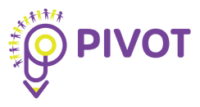How the PIVOT Project Advances the European Vision for Inclusive Education
In today’s increasingly diverse classrooms, fostering equitable and inclusive learning environments is not only a pedagogical priority but a societal imperative. Funded under Erasmus+ and aligned with the European Education Area’s strategic objectives, the PIVOT project (Promoting Inclusive Instruction for Active Participation in Diverse Classrooms) embodies the principles and policy directions outlined in the European Commission/EACEA/Eurydice 2023 report on Promoting Diversity and Inclusion in Schools in Europe.
Building Inclusive Schools Through Pedagogical Innovation
The Eurydice report emphasizes that “inclusion must start, without any doubt, in school,” identifying the urgent need for teaching approaches that accommodate the multifaceted needs of all learners. PIVOT directly responds to this call by developing and piloting an inclusive curriculum using wordless texts, proven tools for bridging linguistic, cognitive, and cultural barriers in diverse classrooms.
By focusing on oral language development and active student participation, PIVOT aligns with the European Commission’s aim to improve learning outcomes for learners with special educational needs (SEN), migrant and refugee backgrounds, and those from low socioeconomic groups identified as most vulnerable in the Eurydice report.
Empowering Teachers as Change Agents
One of the critical barriers to inclusion, as noted in the Eurydice report, is insufficient teacher preparation to manage inclusive classrooms. PIVOT addresses this by offering comprehensive professional development and coaching for teachers, equipping them with evidence-based inclusive teaching practices such as scaffolding, flexible grouping, and culturally responsive pedagogy.
This aligns with the report’s emphasis on the importance of initial teacher education (ITE) and continuous professional development (CPD) for equipping educators with the skills needed to foster inclusion.
Data-Driven and Evidence-Based Approach
The Eurydice report underscores the need for disaggregated data and evidence-based policies to combat discrimination and improve equity in schools. PIVOT’s commitment to experimental research design for evaluating the impact of its educational programme ensures that its practices are both measurable and scalable across EU education systems.
Moreover, the project’s development of a cross-national teacher needs analysis and an assessment framework directly supports the kind of systemic monitoring and evaluation promoted by the European Commission.
Conclusion: From Policy to Practice
The Eurydice 2023 report provides a powerful blueprint for inclusive education in Europe, but such a vision must be translated into tangible classroom strategies, teacher capacity building, and inclusive curricula. The PIVOT project stands as a model of how Erasmus+ initiatives can operationalize EU values of equity, diversity, and inclusion, ultimately working toward a school system where every child regardless of background feels valued, supported, and empowered to thrive.
